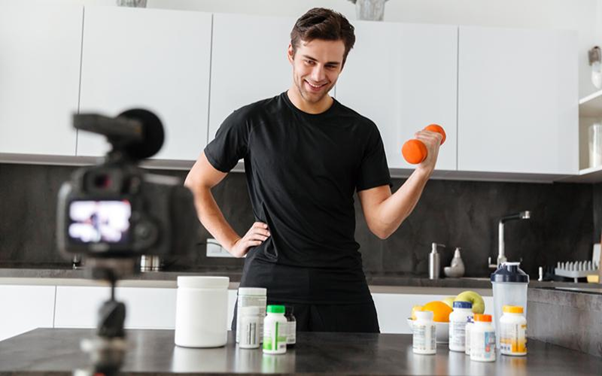Key Takeaways:
- Plasma donation centers have specific eligibility criteria, including age requirements, health criteria, and medication restrictions.
- Donating plasma can benefit both recipients and donors by improving lives, boosting the immune system, and providing compensation.
- Preparing for a plasma donation involves eating a protein-rich meal, staying hydrated, and taking care of your body after donation.
- Common misconceptions about plasma donation include fear of needles, confusing plasma donation with blood transfusion, and misunderstanding the impact of COVID-19 vaccination.
Plasma donation is a selfless act that can save lives and make a positive impact in your community. However, not everyone is eligible to donate plasma. In this comprehensive guide, we will explore the criteria for plasma donation eligibility, the benefits of plasma donation, how to prepare for a plasma donation, and common misconceptions about plasma donation.
1. Who Can Donate Plasma?
Plasma donation centers have specific requirements for potential donors to ensure the safety and effectiveness of the donation process. Let’s take a closer look at the eligibility criteria for plasma donation:
1.1 Age Requirements
One of the primary criteria for plasma donation is meeting the age requirements. In general, donors must be at least 18 years old, although the minimum age may vary slightly depending on the donation center. This age requirement is in place to ensure that donors are fully capable of understanding the process and giving informed consent.
1.2 Health Criteria
To donate plasma, you must be in good overall health. Donors undergo a thorough screening process to determine their fitness for donation. This includes a series of health-related questions and a physical examination. Some conditions that may disqualify potential donors include chronic illnesses, recent surgeries, and certain infectious diseases. These restrictions are in place to protect both the donor and the recipients who will receive the plasma.
1.3 Medication Restrictions
Certain medications can affect the quality of plasma or pose risks to the recipient. As a result, there may be restrictions on medications that donors can take. Common examples include blood thinners, certain antibiotics, and medications used to treat chronic conditions. It is essential to disclose all medications you are taking during the screening process to ensure your eligibility for plasma donation.
2. The Benefits of Plasma Donation
Donating plasma not only helps those in need but also offers a range of benefits to the donors themselves. Let’s explore these benefits in more detail:
2.1 Improving Lives through Plasma
Plasma is a vital component in the production of life-saving medical treatments. Donated plasma is used to create therapies for individuals with various medical conditions, including immune deficiencies, bleeding disorders, and neurological disorders. By donating plasma, you become an active participant in improving and saving lives.
2.2 Boosting Your Immune System
Regular plasma donation can have a positive impact on your immune system. When you donate plasma, your body compensates by producing new plasma cells, which can help strengthen your immune system. Additionally, the screening process for plasma donation includes a mini-physical examination, where potential health concerns can be identified early on.
2.3 Receiving Compensation for Your Donation
Unlike blood donation, plasma donation often comes with compensation for donors. While policies regarding compensation may vary between donation centers, many centers offer financial incentives or gift cards as a token of appreciation for donors’ time and commitment. The compensation provided can help cover expenses or serve as supplemental income.
3. How to Prepare for a Plasma Donation
Preparing for a plasma donation is crucial to ensure a successful and comfortable experience. Here are some steps you can take to prepare:
3.1 What to Eat and Drink Before Donation
Prior to donating plasma, it is important to consume a meal that is rich in protein and low in fat. This helps maintain your blood glucose levels during the donation process. Drinking plenty of fluids, such as water or juice, is also essential to stay hydrated and promote a smooth donation process.
3.2 Steps to Take on Donation Day
On the day of donation, make sure to get a good night’s sleep and avoid any strenuous activities. Dress comfortably and bring a valid identification document, such as a driver’s license or passport, to the donation center. It is also a good idea to bring a book, magazine, or electronic device to keep yourself entertained during the donation process.
3.3 Post-Donation Recovery Tips
After donating plasma, it is important to take care of your body to ensure a smooth recovery. Drink plenty of fluids to replenish the fluids lost during donation and avoid any strenuous physical activities for the rest of the day. It is also recommended to eat a balanced meal to provide your body with essential nutrients.
4. Common Misconceptions about Plasma Donation
Plasma donation is often surrounded by misconceptions and myths. Let’s debunk some of the most common ones:
4.1 Fear of Needles and Pain
One common misconception about plasma donation is that it is a painful process. While the idea of needles may cause anxiety for some individuals, the experienced staff at donation centers are trained to ensure a comfortable experience. The needle insertion is typically quick and relatively painless.
4.2 Plasma Donation and Blood Transfusion
There is a misconception that donating plasma is equivalent to donating blood. While both processes involve a donation, they serve different purposes. Plasma donation focuses on collecting plasma, while blood donation collects whole blood. Plasma is mainly used for creating medical treatments, while blood transfusion provides whole blood to patients in need.
4.3 Plasma Donation and COVID-19 Vaccination
Some individuals may believe that receiving the COVID-19 vaccine disqualifies them from donating plasma. However, as long as you meet the eligibility criteria and have fully recovered from any potential side effects of the vaccine, you can still donate plasma. It is crucial, though, to disclose any recent vaccinations during the screening process.
By understanding the eligibility criteria, benefits, preparation, and debunking misconceptions about plasma donation, you are equipped with the knowledge to make an informed decision about donating plasma. Your contribution can make a significant impact and help save lives.
FAQ
Question: Who can donate plasma?
Answer: Plasma donation centers have specific requirements for potential donors, including meeting age requirements, health criteria, and medication restrictions. Donors must generally be at least 18 years old, in good overall health, and not taking certain medications that may affect plasma quality or pose risks to recipients.
Question: What are the benefits of plasma donation?
Answer: Plasma donation helps those in need by providing life-saving medical treatments. It also offers benefits to donors, such as improving their immune system and providing compensation for their donation.
Question: How do I prepare for a plasma donation?
Answer: To prepare for a plasma donation, make sure to eat a protein-rich meal and stay hydrated before the donation. On the day of the donation, get a good night’s sleep, dress comfortably, and bring a valid identification document to the donation center. After donation, drink plenty of fluids and avoid strenuous physical activities.
Question: Is plasma donation a painful process?
Answer: While the idea of needles may cause anxiety, the experienced staff at donation centers ensure a comfortable experience. The needle insertion is typically quick and relatively painless.
Question: What is the difference between plasma donation and blood transfusion?
Answer: Plasma donation focuses on collecting plasma, which is used to create medical treatments. Blood donation collects whole blood and provides it to patients in need through blood transfusions.
Question: Can I donate plasma if I have received the COVID-19 vaccine?
Answer: Receiving the COVID-19 vaccine does not disqualify you from donating plasma as long as you meet the eligibility criteria and have fully recovered from any vaccine side effects. It is important to disclose any recent vaccinations during the screening process.
Please note that the questions and answers provided here are for informational purposes only and may vary based on individual circumstances and donation center policies. It is always best to consult with the specific donation center for accurate and up-to-date information.
Useful Resources:
- American Red Cross
- AABB (formerly known as the American Association of Blood Banks)
- S. Department of Health and Human Services
- S. Food and Drug Administration
- Centers for Disease Control and Prevention (CDC)
- Plasma Protein Therapeutics Association (PPTA)
- National Center for Biotechnology Information (NCBI)
- Healthline








